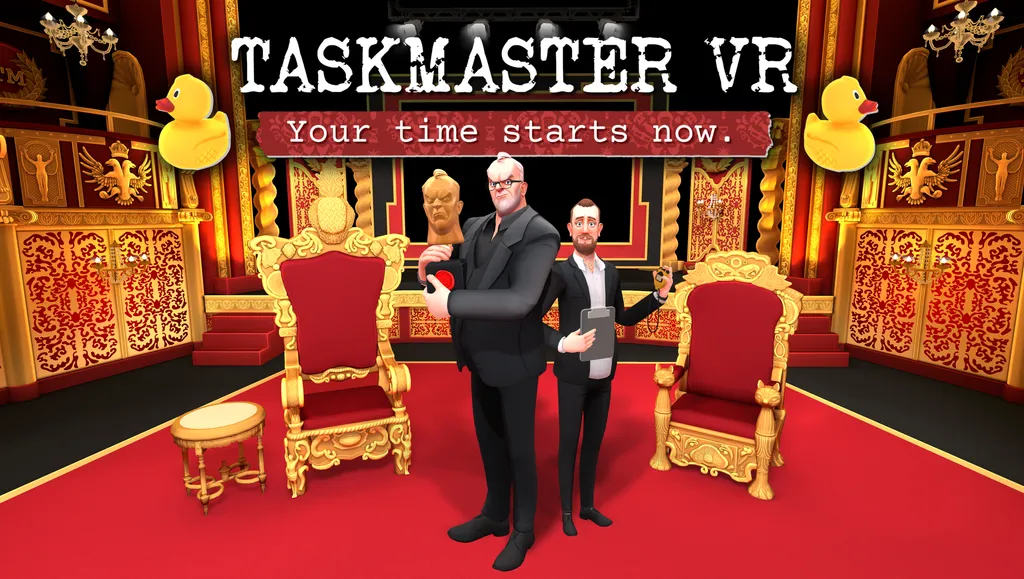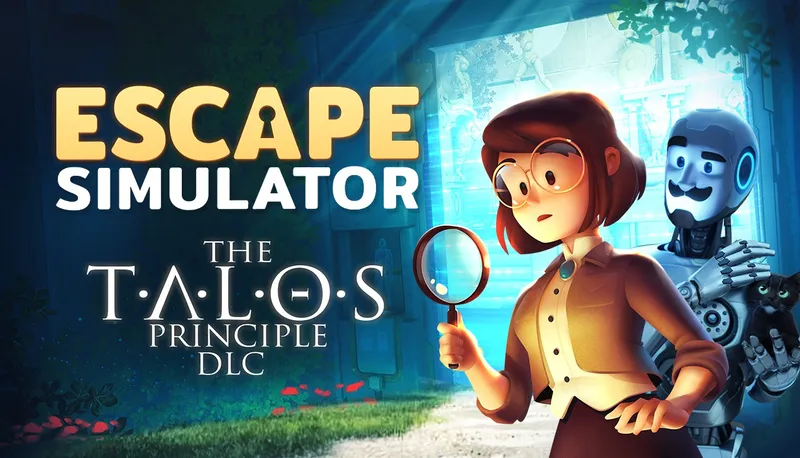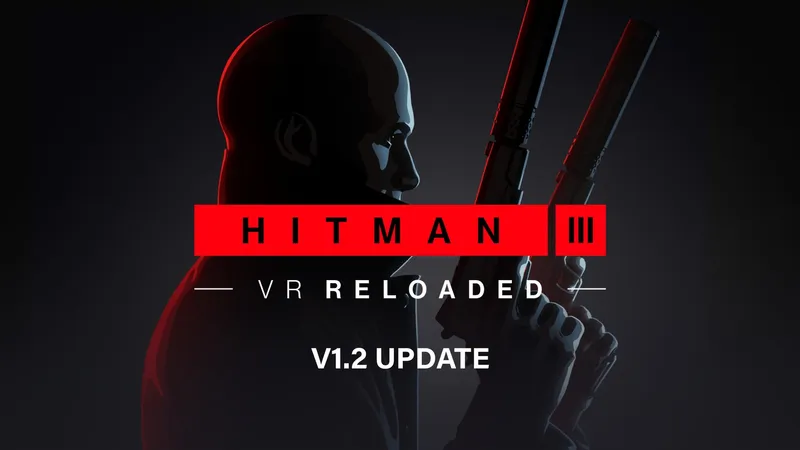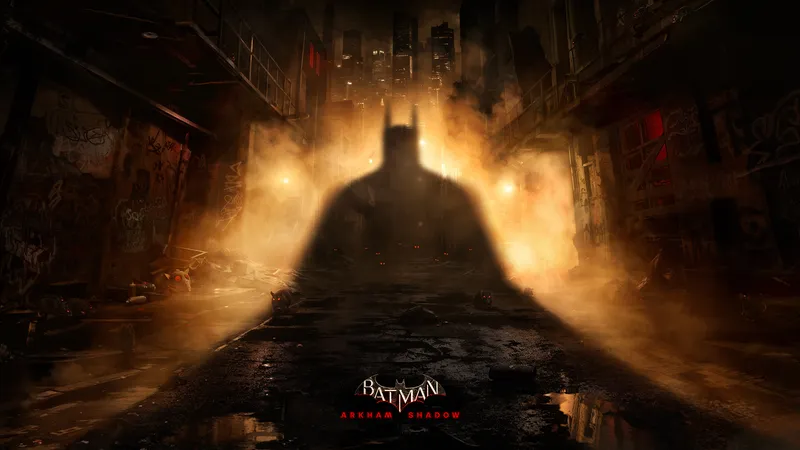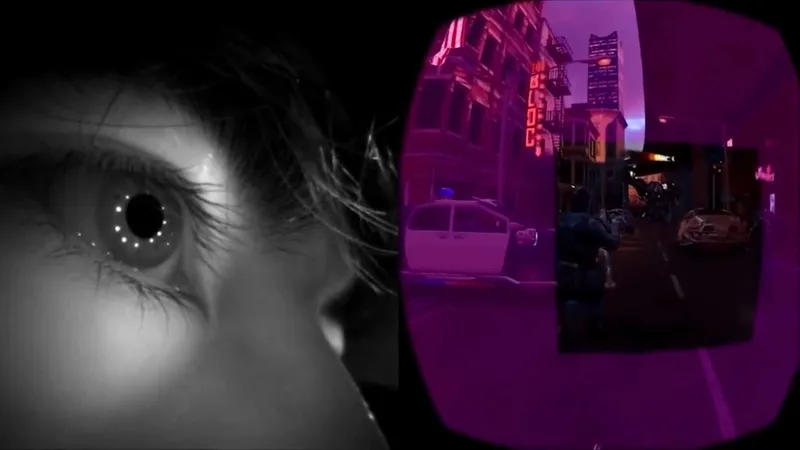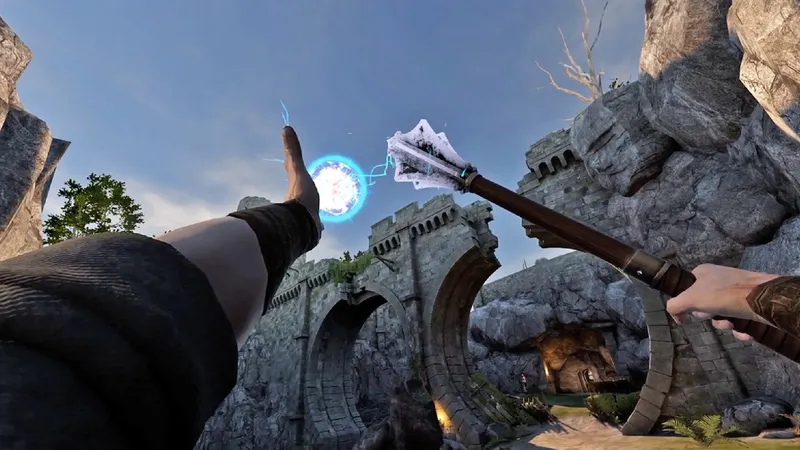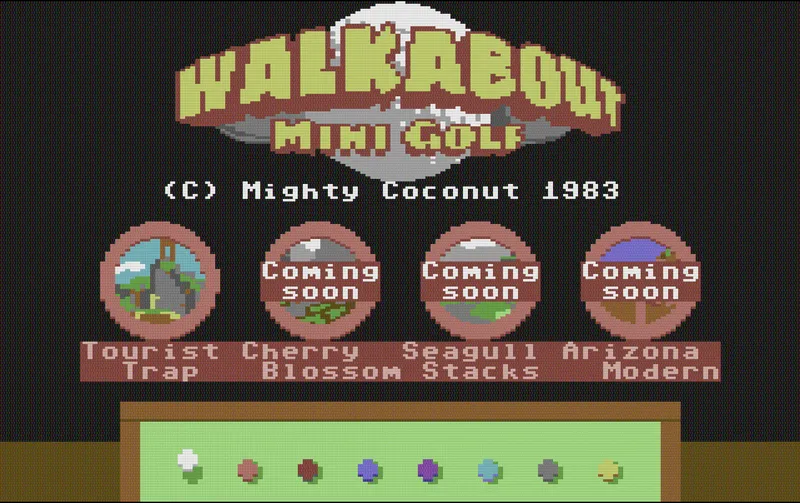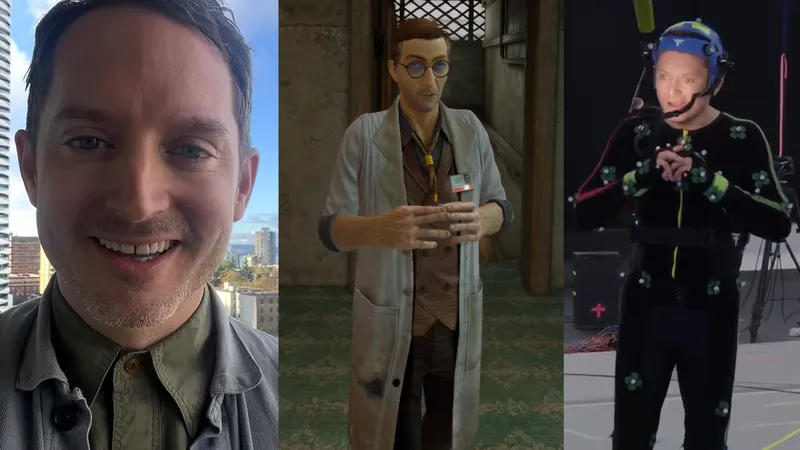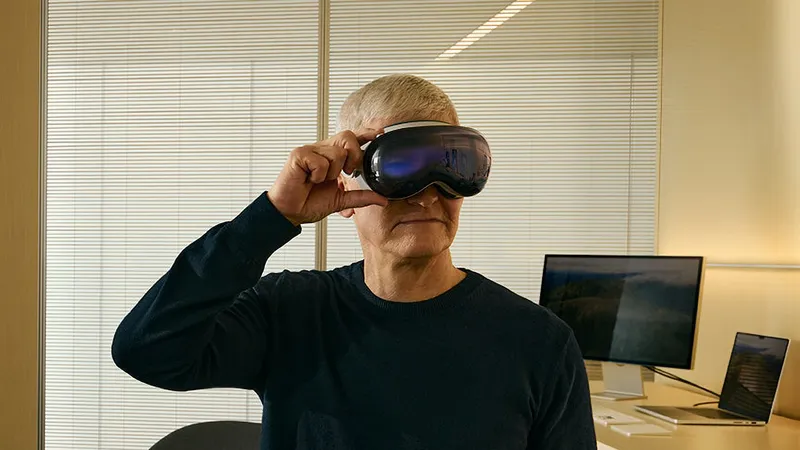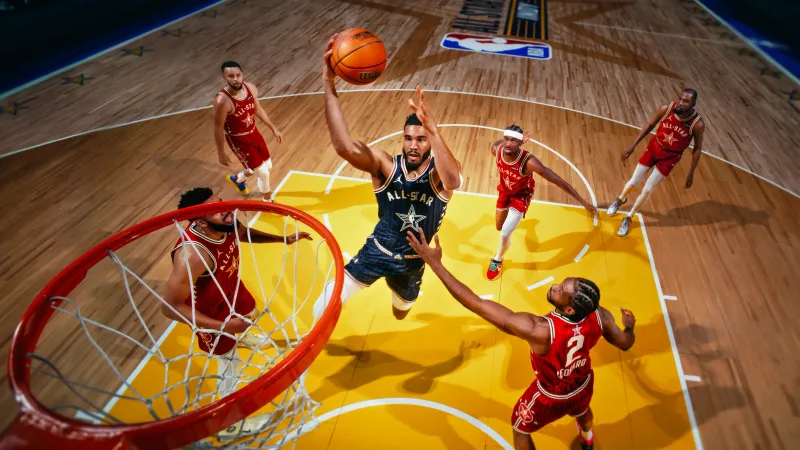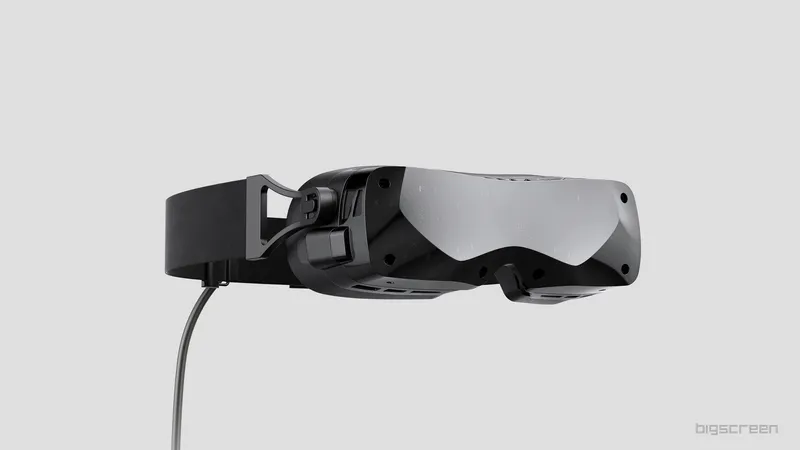The British comedy game show Taskmaster is a joyful slice of television that’s beloved globally. It’s something that all TV shows, regardless of genre, should strive to be: clever, unique, honest with a hint of devious, and gut-shakingly funny. Sadly, Taskmaster VR doesn’t live up to the same standard.
For the unfamiliar, Taskmaster is a reality comedy show. Five comedians commit to a full season in which they are tasked with various challenges to be judged and scored by the Taskmaster, comedian, and towering point titan Greg Davies. Tasks are carried out and measured down to the infinitesimal degree by the Taskmaster’s meek, obsessive assistant and the show’s creator, Alex Horne.
Tasks generally include one of three types: artistic or creative challenges, skill or physical challenges, and mental dexterity puzzles. Each has a unique bent or obstacle that makes it silly and challenging. Dedication, aggravation, and a competitive spirit fuel the comedy as five comedians work on seemingly inane and pointless endeavors and the twists the game designers pull on them.
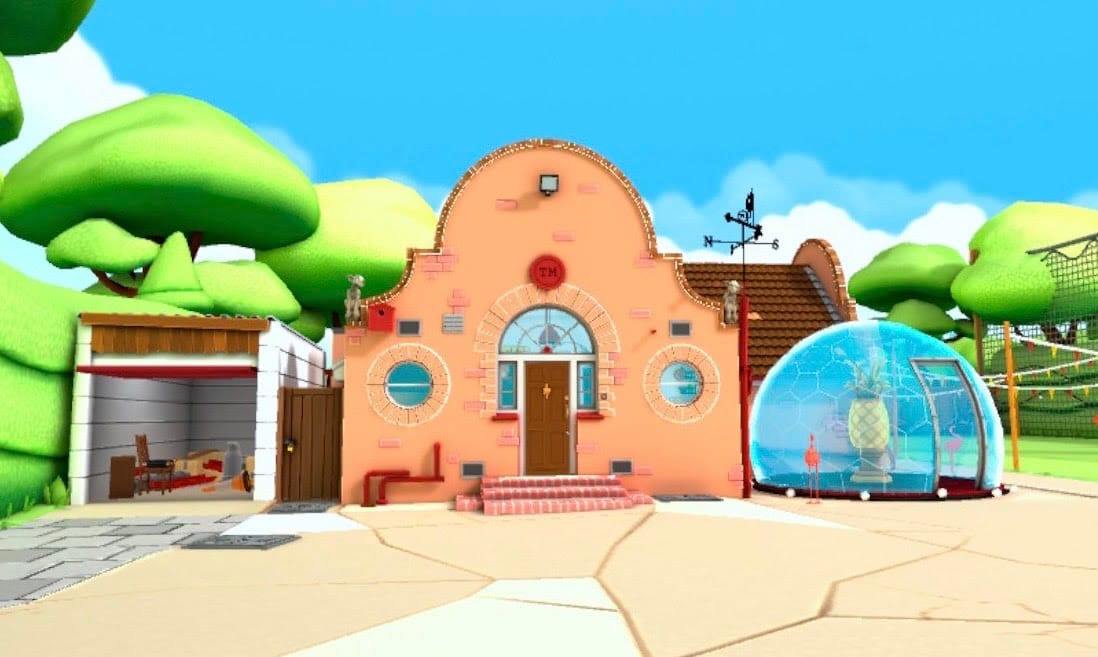
Sometimes, they have to complete one task, and the effort they put into it must be applied to a second surprise task. On other occasions, seemingly impossible tasks have solutions and rules hidden in plain sight to the delight of an audience. The drama these crazy tasks create can’t be written or created without its joyful spontaneity and genuine moments.
If making a VR version of Taskmaster was one of the show's challenges, it wouldn't earn enough points to come close to winning a collection of the “most desirable smooth things.” If you’re a fan, you'll understand that Taskmaster reference, but you won’t get nearly the same enjoyment out of this game as you do from watching it.
Your Time Starts Now
Taskmaster VR takes place over five episodes, each containing three tasks. Players are plopped in a chair on the regal Taskmaster studio stage as they face the glaring judgment of Davies and his “little” assistant, who he viciously berates and defames. Two tasks occur in a virtual recreation of the iconic Taskmaster house, while the final “studio task” happens in front of the Taskmaster and his assistant. Following each task, the virtual Taskmaster discusses his assessment of your performance and awards you up to five points.
One of the biggest challenges of recreating Taskmaster in a video game is how the virtual judge assesses you based on subjective criteria. It’s one of the game’s best achievements. Davies’ reaction to specific tasks feels like things he’d say on the show if Bob Mortimer were tasked with making a unique sandwich for Alex or Rhod Gilbert had to move a raw egg as far as possible without touching or carrying it.
Taskmaster House's recreation is also a notable accomplishment. If you’ve watched the show, you can almost plot out the house layout and its contents, whether that's the changing portrait of the show’s unquestioned overlord in the parlor or the iconic shed filled with random stuff to help you complete your assignments. Exploring the space during tasks and remembering their locations so you can recall them for future tasks is part of the challenge, and it’s an entertaining concept.
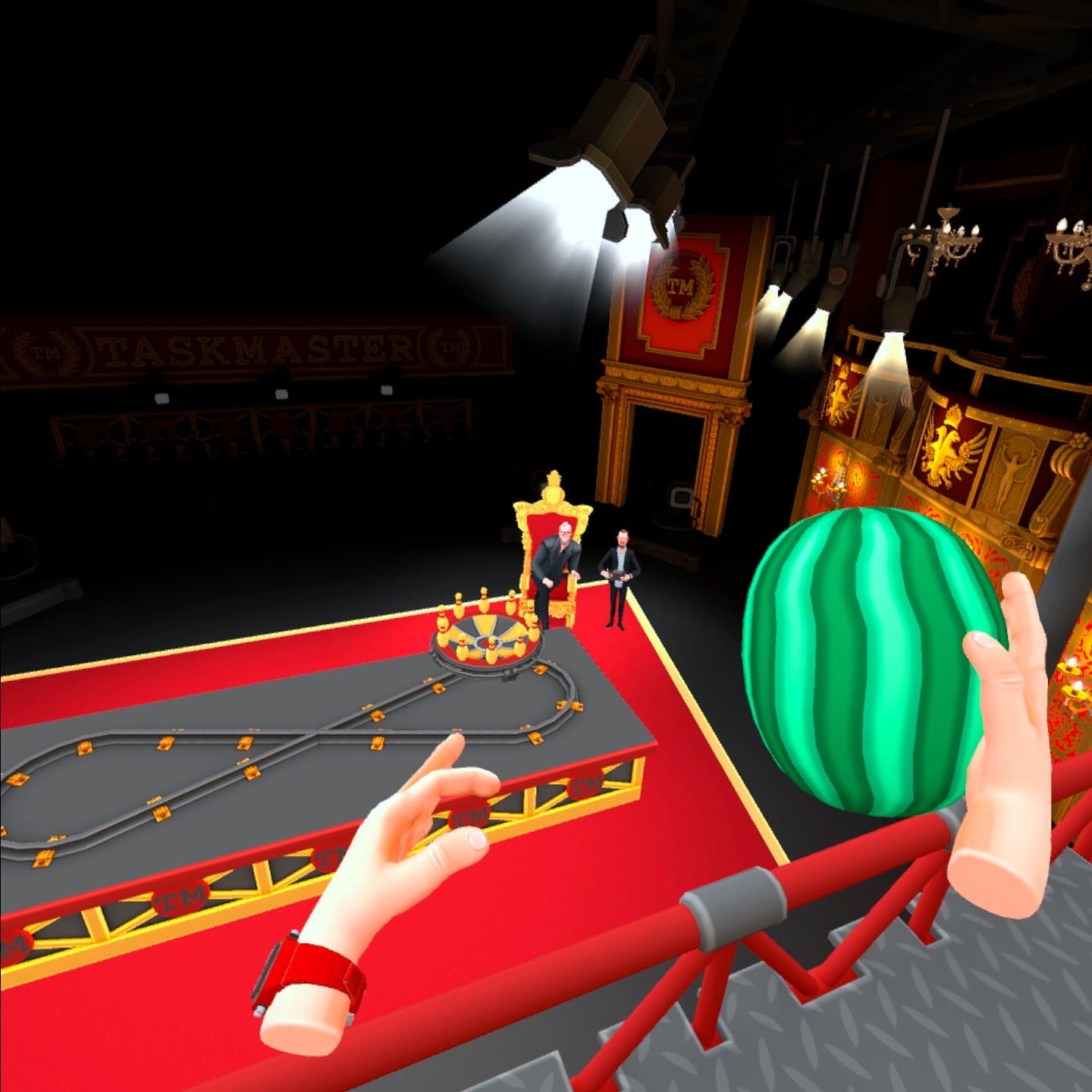
Unfortunately, this is also one of its most significant limitations. Part of the fun of Taskmaster is watching comedians use creative ways to accomplish these random-seeming tasks with lateral thinking skills. For instance, one of the most memorable tasks involved hitting a croquet ball into a golf-style hole about 50 yards away in the lawn. Gilbert realized he could get a hole-in-one simply by digging up the grass and soil surrounding the hole and moving the ripped earth right next to the croquet ball so he could knock it in.
There aren't many ways to do that because the game is limited in what you can access and do to the landscape. The layout offers plenty of different materials to work with, so you can find unique solutions to these problems, but you’re still limited to whatever you can see and do with the environment.
What Else Goes On A Head?
Another fun part of the show is watching comedians get frustrated trying to complete their challenges, yet this adaptation would make an audience feel just as frustrated. One task requires you to complete a series of mini-tasks around the house to create the longest chain possible as more tasks are added.
Something as simple as slamming the front door took me several tries because the game couldn’t recognize the movement unless executed along some invisible parameters. It ate up a lot of time and affected my score, which I would’ve argued heavily with the Taskmaster if I were on the TV show.
Throwing is often really aggravating, too. When you’re tasked with throwing random objects, execution must be key for it to be fair, and it just doesn’t work as well on the first, second, or third try. Every game has a learning curve for challenges like this, but the throwing mechanic feels really sticky and badly timed. It’s like someone coated glue to every object in the house, which isn’t something even the cruel and scheming Taskmaster would do.
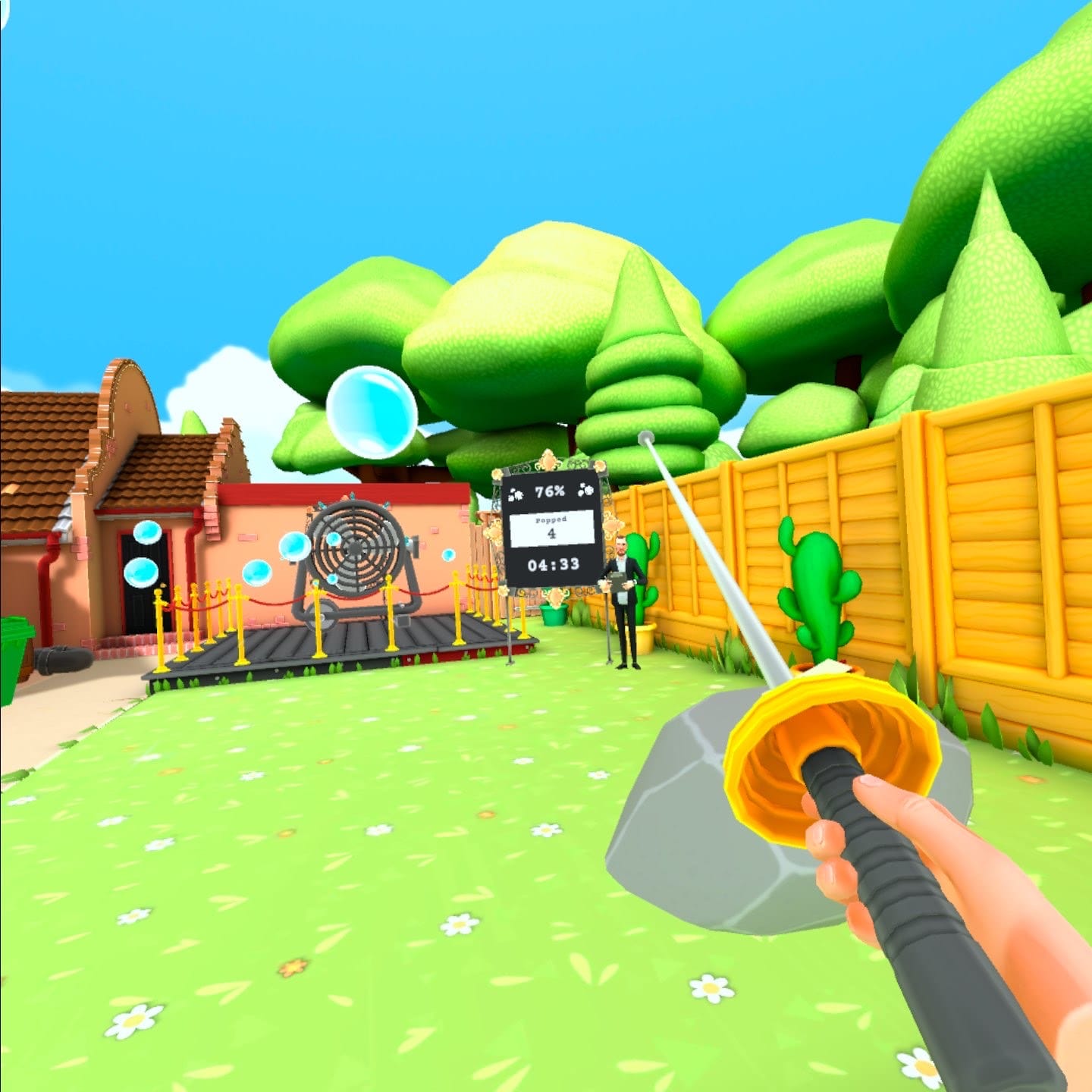
Usually, that wouldn’t be a big problem since you could take time to learn how the throwing mechanism works and try it again. However, once you complete a task, the game’s twist or secret mechanic is revealed, providing you with a different way you could’ve executed it. You can replay tasks to get a higher score, but when you already know how you could’ve done it better, it’s already ruined. You really don’t get a second proper shot.
Comfort
Scallywag Arcade’s virtual recreation of Taskmaster’s studio and house are all accessible and the interface is adjustable. You can play it while sitting or standing, letting you move using artificial stick-based locomotion or teleportation movement.
Interacting with props can sometimes be tricky and that’s a huge issue for a game that requires using objects to interact with other objects. We also noted some glitches where objects got stuck inside each other, which seemed to confuse the game as it tried to correct this.
It's unrealistic to expect a Scribblenauts-style game where you can conjure up any tangible object you can think of by typing it into a prompt. However, Taskmaster is a show where wide, out-of-the-box thinking is encouraged, and that's limited by whatever fits into the game and what you can find or remember from previous tasks. There are a lot of options and objects. Scallywag Arcade has done its best with this concept, but much like the throwing challenges, it doesn’t hit the mark.
20 Seconds To Give A Man A Soul?
The biggest disappointment is how short the whole experience lasts, and that wouldn’t be a problem if Taskmaster VR had more replayability. Each task lasts around 20 minutes, depending on how quickly you solve it or achieve the goal, so the whole game could be finished in a couple of hours.
After completing each task, you return to the studio to get your assessment from virtual Greg Davies and Little Alex Horne. The game does a notable job of planning for different outcomes and delivering some funny dialogue to match each possible path.
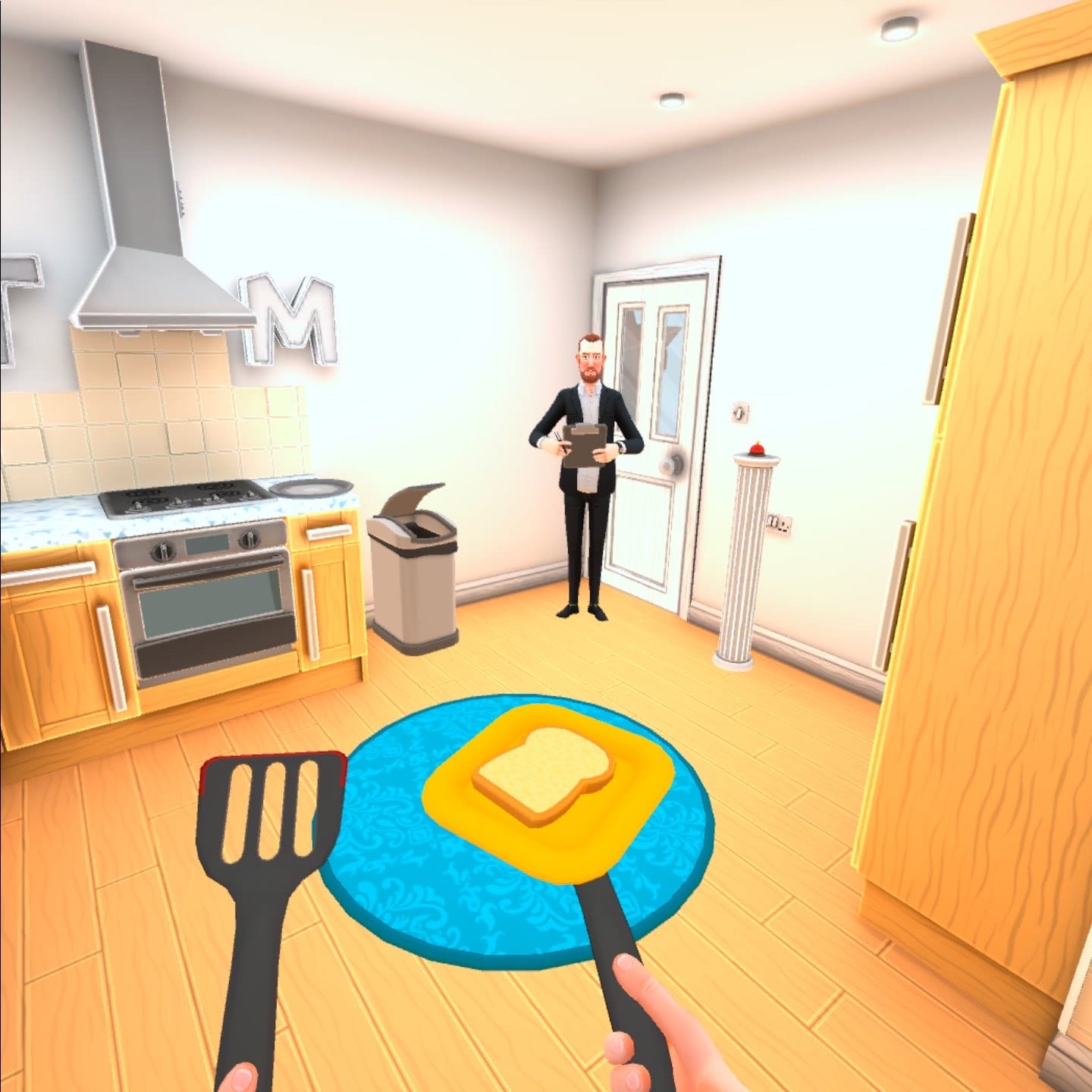
Maybe they were trying to recreate the feeling of being an actual Taskmaster contestant, where one chance is all you get, but comedians get a salary for being on the show. We’re playing the game and hoping we can play it again to learn from our mistakes on our own, only to be told what we could've done better. Some can be replayed and done differently to see how Davies and Horne would react, but that’s not the case for most of them.
Hopefully, some new tasks are in the works in a future update or DLC pack that can correct those mistakes or lengthen the gameplay with more tasks. Taskmaster VR also lets you create your own tasks and scenarios in a sandbox mode so that you can access every available prop in the game in a Super Mario Maker-style."
Taskmaster VR – Final Verdict
Taskmaster VR isn’t a complete waste of time. Some challenges and moments are legitimately fun and entertaining, capturing the iconic British comedy show's spirit, look, memorable characters, and comedic style. Unfortunately, the frustrating parts far outweigh them.
The throwing mechanic is almost useless, even if you’ve got a Hawkeye-grade aim. Some tasks that you’ve clearly completed have to be done repeatedly to meet the game’s metrics of what it can recognize as completed, all while time melts away in challenges where every second counts. Those are crucial for a game where you only get one shot at pleasing the Taskmaster. Two points, there. It’s done.

UploadVR uses a 5-Star rating system for our game reviews – you can read a breakdown of each star rating in our review guidelines.

